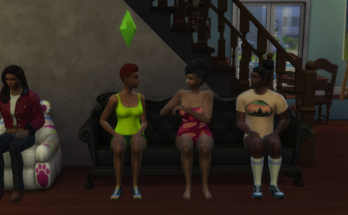This semester, I am teaching my Online Feminist Space class at home at Pitzer rather than on leave at USC. The notable difference in the course is not in the intelligence, ethnic makeup, or political awareness of the students, but instead, in the students’ choices of online spaces for their coursework.
Perhaps because I warned the Pitzer students not to use corporate spaces (like their stalwart forerunners) or perhaps because their daily lives are more centrally formed by an active feminist collegiate community, the Pitzer class is spending their term in more overtly feminist or politicized spaces, with a decided minority occupying generic corporate culture (there are some interesting exceptions).
Given this orientation, their work is begging different questions about online experience given that most of them are occupying what student, Stephanie Saxton, calls “in-between spaces”: the kind of website that sits on the line between a feminist orientation and a friendly relation to mainstream culture “placing itself between lady-mag corporate culture and radical feminism—presumably for comfort reasons, so as not to alienate users from either side of the spectrum.”
Working primarily in such in-between spaces, their work begs important questions, and suggests keen insights as well:
- can you have a radical feminist practice online based in an essentialist understanding of the body?
- can you have a radical online feminist practice that is not based on the body?
- can you have a radical online feminist practice that is based in fantasies of oppression?
- can you progressively link the fantasy (and possibility) of the online with the lived oppression of real bodies?
- can you have a radical feminist practice if you close access to insure safety and community, creating separate spheres (for example sites that are for lesbians or bi-women but are not open to queers or women of color)?
- while equality at the level of access and freedom of expression are a baseline for feminist interaction, are they enough?
- while self-determination over sexuality and voice are a baseline for feminist interaction online, are they enough?
- while being sex-positive and queer-friendly are a baseline for feminist interaction online, without an associated commitment to a political project, they are not enough.
- if you are sex-positive, you need to also destabilize gender and sexuality norms to be feminist.
- feminist sites that do not overtly account for race and complex gender and sexuality are not enough.
- feminist sites that limit the agency, authority, activity, and authoring of their users are not enough.
- mean humor, and aggressive commenting culture need rules of engagement.
- intimacy and duration matter for building close and supportive communities.
- female spaces may not be feminist.

